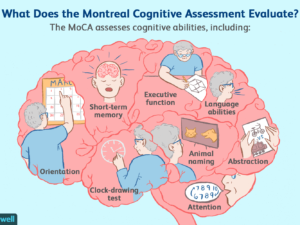By Amy Sheridan, Family Support and Activity Manager at Seasons
Memory screenings are a significant first step toward finding out if a person may have a memory problem. Memory problems could be caused by Alzheimer’s disease or other medical conditions. While a memory screening is not used to diagnose any particular illness and does not replace consultation with a qualified healthcare professional, it is very helpful. A screening can check a person’s short term memory along with other thinking skills and it can indicate if someone might benefit from a more complete medical visit.
It is very important to identify the disease or problem that is causing memory loss. Some memory problems can be readily treated, such as those caused by vitamin deficiencies or thyroid problems. Other memory problems might result from causes that are not currently reversible, such as Alzheimer’s disease.
 In general, the earlier the diagnosis, the easier it is to treat one of these conditions. Early recognition of mild cognitive impairment (MCI)— mild memory loss that may eventually lead to dementia— provides an opportunity for healthcare professionals to treat this condition, and possibly slow down the changes in memory and other thinking skills.
In general, the earlier the diagnosis, the easier it is to treat one of these conditions. Early recognition of mild cognitive impairment (MCI)— mild memory loss that may eventually lead to dementia— provides an opportunity for healthcare professionals to treat this condition, and possibly slow down the changes in memory and other thinking skills.
Early diagnosis of Alzheimer’s disease can improve quality of life for the person affected and for the family. Individuals with Alzheimer’s disease can learn more about the disease, including available and emerging medical treatments; get counseling and other social services support in their community; address legal, financial and other planning issues; and have more of a say in decision-making. Caregivers and other family members can take advantage of community services, such as support groups and educational classes.
Some people may be nervous about coming in for a memory screening. Here is what you can expect.
A memory screening is a simple and safe evaluation tool that checks memory and other thinking skills. It consists of a series of questions and/or tasks designed to test memory, language skills, thinking ability and other intellectual functions. The evaluation tool itself only takes about 10-15 minutes to complete. A memory screening is not used to diagnose any particular illness and does not replace consultation with a qualified healthcare professional. The person who administers the screening will review the results with you. Individuals with a below-normal score or those with a normal score but who still have concerns should follow up with their doctor. Results of the memory screenings are confidential. Ask for a copy to bring to your doctor or request a copy be sent to their office. If interested, additional services available through Senior Services will also be discussed at this time.
How do I know if I should get a memory screening?
Memory screenings make sense for anyone concerned about memory loss or experiencing warning signs of dementia. This could include individuals whose family and friends have noticed changes in them or who believe they are at risk due to a family history of Alzheimer’s disease or a related illness. Screenings are also appropriate for anyone who does not have a concern right now, but who wants to see how their memory is now and for future comparisons. Senior Services will provide a memory screening annually to anyone who is interested.
The following are twelve warning signs of dementia:
- Trouble with new memories
- Relying on memory helpers
- Trouble finding words
- Struggling to complete familiar actions
- Confusion about time, place or people
- Misplacing familiar objects
- Onset of new depression or irritability
- Making bad decisions
- Personality changes
- Loss of interest in important responsibilities
- Seeing or hearing things
- Expressing false beliefs
When you start to notice memory changes, seeking early detection is key. If you or someone you know is experiencing increasing changes with their memory and could benefit from additional services, please contact Amy Sheridan, Family Support and Activity Manager at 989-633-3764.
Check out our section, Our Mind Matters, next month.

